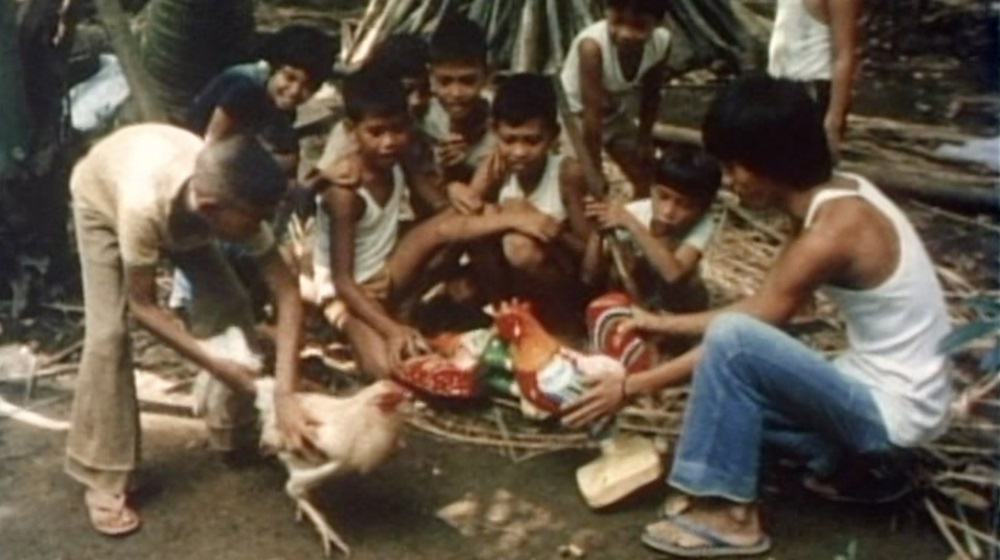Turumba grew out of a commission by the German broadcaster ZDF for a series of films, in which each filmmaker had to start with a phrase from the Lord's Prayer. Tahimik chose "our daily bread" and set his film in the village of Pakil (Philippines), where a procession for Our Lady of Sorrows is held. The main characters, the boy Kadu and his family, make papier-mâché figurines which they sell on the street during the festivities, living off their earnings throughout the rest of the year. A German tourist, the manager of a shopping centre, decides to buy up their entire stock and orders another large consignment for the German Oktoberfest. The village is transformed into an assembly line, a factory using child labour to produce standardised products. Here they also start making dachshund figures, the mascot of the 1972 Munich Olympics, where Tahimik himself had actually been a souvenir seller.
Tahimik shows a world facing globalisation and cultural homogenisation, caught between technological dreams and indigenous authenticity. In his films we perceive the embryonic processes of individualisation, the atomisation of subjectivities and bodily exhaustion that make up neoliberalism, this being challenged through the release of vital, popular and collective energy.
Turumba, Kidlat Tahimik, 1981, 16 mm, 96', original language with English and Spanish subtitles.
16 mm projection.
With thanks to Kidlat Tahimik.
